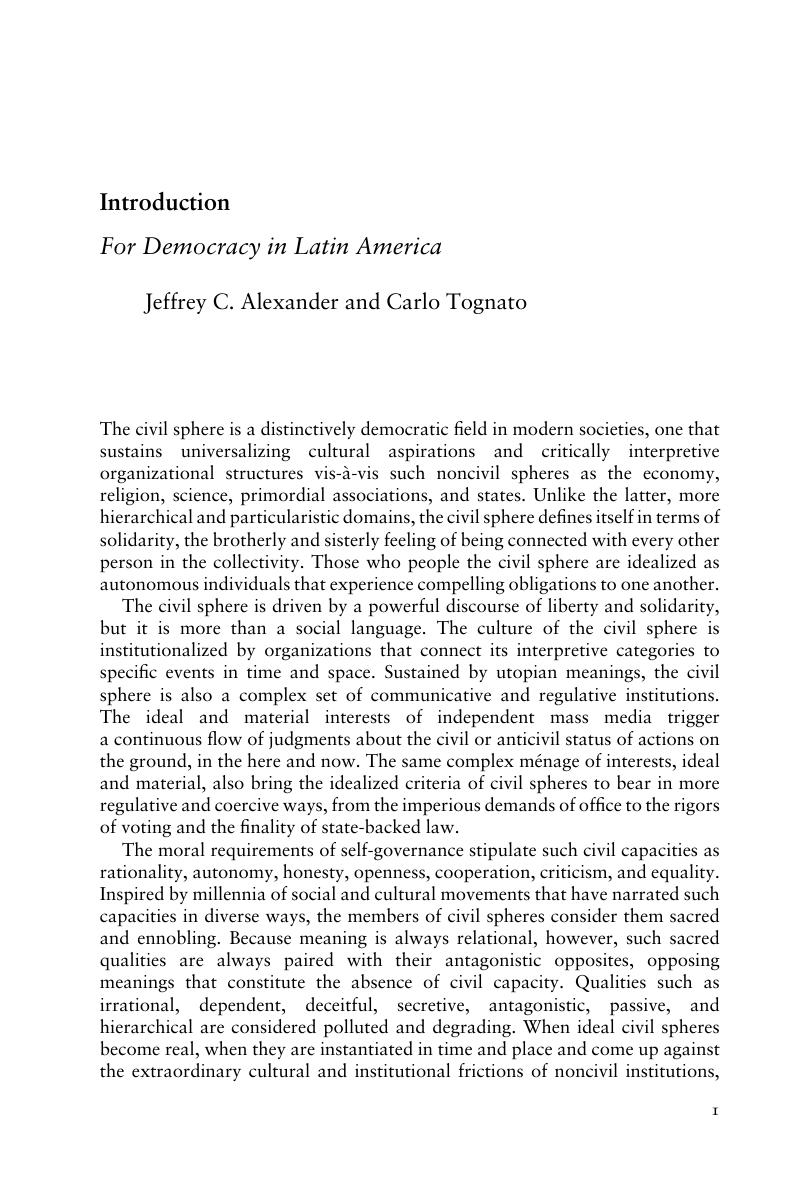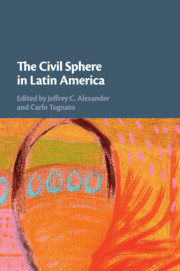Book contents
- The Civil Sphere in Latin America
- The Civil Sphere in Latin America
- Copyright page
- Dedication
- Epigraph
- Contents
- Figure and Tables
- Notes on the Contributors
- Preface and Acknowledgments
- Introduction
- Part I Scandals and Civil Indignation
- Part II Militancy, Civility, and Polarization
- Part III Law, Order, and Solidarity
- Part IV Commentary and Conclusion
- Conclusion
- Index
- References
Introduction
For Democracy in Latin America
Published online by Cambridge University Press: 28 April 2018
- The Civil Sphere in Latin America
- The Civil Sphere in Latin America
- Copyright page
- Dedication
- Epigraph
- Contents
- Figure and Tables
- Notes on the Contributors
- Preface and Acknowledgments
- Introduction
- Part I Scandals and Civil Indignation
- Part II Militancy, Civility, and Polarization
- Part III Law, Order, and Solidarity
- Part IV Commentary and Conclusion
- Conclusion
- Index
- References
Summary

- Type
- Chapter
- Information
- The Civil Sphere in Latin America , pp. 1 - 16Publisher: Cambridge University PressPrint publication year: 2018
References
- 1
- Cited by



